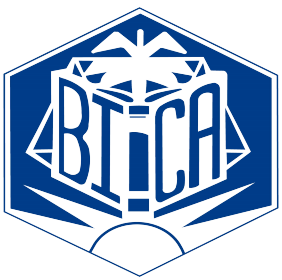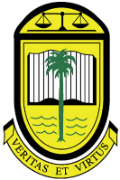
An accountant is a practitioner of accounting or accountancy. Accountants who have demonstrated competency through their professional associations' certification exams are certified to use titles such as Chartered Accountant, Chartered Certified Accountant or Certified Public Accountant, or Registered Public Accountant. Such professionals are granted certain responsibilities by statute, such as the ability to certify an organization's financial statements, and may be held liable for professional misconduct. Non-qualified accountants may be employed by a qualified accountant, or may work independently without statutory privileges and obligations.

Chartered accountants were the first accountants to form a professional accounting body, initially established in Scotland in 1854. The Edinburgh Society of Accountants (1854), the Glasgow Institute of Accountants and Actuaries (1854) and the Aberdeen Society of Accountants (1867) were each granted a royal charter almost from their inception. The title is an internationally recognised professional designation; the certified public accountant designation is generally equivalent to it. Women were able to become chartered accountants only following the Sex Disqualification (Removal) Act 1919 after which, in 1920, Mary Harris Smith was recognised by the Institute of Chartered Accountants in England and Wales and became the first woman chartered accountant in the world.

Founded in 1904, the Association of Chartered Certified Accountants (ACCA) is the global professional accounting body offering the Chartered Certified Accountant qualification (ACCA). It has 240,952 members and 541,930 future members worldwide. ACCA's headquarters are in London with principal administrative office in Glasgow. ACCA works through a network of over 110 offices and centres in 51 countries - with 346 Approved Learning Partners (ALP) and more than 7,600 Approved Employers worldwide, who provide employee development.

The Association of Accounting Technicians (AAT) is a professional body for Accounting Technicians, with over 150,000 members worldwide.
The Hong Kong Institute of Certified Public Accountants is the professional accounting body of Hong Kong.

Founded in 1908, the Certified General Accountants Association of Canada (CGA-Canada) serves Certified General Accountants and students in Canada and nearly 100 countries. CGA-Canada established the designation's certification requirements and professional standards, offers professional development, conducts research and advocacy, and represents CGAs nationally and internationally. CGA-Canada joined the Chartered Professional Accountants of Canada to integrate operations under the CPA banner in 2015. CPA Canada is the new national accounting body formed by the merger of the Canadian Institute of Chartered Accountants (CICA) and the Society of Certified Management Accountants (CMA) in 2013, and now Certified General Accountants.
The Consultative Committee of Accountancy Bodies (CCAB) is an umbrella group of chartered professional bodies of British qualified chartered accountants. The primary objective of the CCAB is to provide a forum for the member bodies to discuss issues of common concern, and where possible, to provide a common voice for the accountancy profession when dealing with the United Kingdom government.
British qualified accountants are full voting members of United Kingdom professional bodies that evaluate individual experience and test competencies for accountants.

The Bahamas Institute of Chartered Accountants (BICA) is a professional body that regulates the accountancy industry in the Bahamas. In theory anyone approved by the relevant government ministry can act as an independent auditor, but in practice, all auditors are members of BICA.
The Institute of Chartered Accountants of Barbados (ICAB) is a professional accountancy body in Barbados. It is the sole organisation in Barbados with the right to award the Chartered Accountant designation. ICAB is a member of the International Federation of Accountants (IFAC). ICAB is also a member of the Institute of Chartered Accountants of the Caribbean.
The Institute of Chartered Accountants of Jamaica (ICAJ) is a professional accountancy body in Jamaica. It is the sole organisation in Jamaica with the right to award the Chartered Accountant designation.

The Institute of Chartered Accountants of Nigeria (ICAN) is a professional accountancy body in Nigeria. It is one of the two professional accountancy associations with regulatory authority in Nigeria, the other being the Association of National Accountants of Nigeria (ANAN). The relationship between the two organizations has been tense. In 2007 ICAN attempted to have a bill declaring ANAN void.
The Institute of Chartered Accountants of Trinidad and Tobago (ICATT) is a professional accountancy body in Trinidad and Tobago. It is the sole organization in Trinidad and Tobago with the right to award the Chartered Accountant designation.
IFACnet, the KnowledgeNet for Professional Accountants, was the global, multilingual search engine developed by the International Federation of Accountants (IFAC) and its members to provide professional accountants worldwide with one-stop access to good practice guidance, articles, management tools and other resources. This enterprise search engine was launched on October 2, 2006, by INDEZ. Originally marketed to professional accountants in business, IFACnet was expanded in March 2007 to provide resources and information relevant to small and medium accounting practices. In 2014, IFACnet was expanded and replaced by IFAC Knowledge Gateway, providing thought leadership and resources from IFAC and across the accountancy profession.
Accountancy in Hong Kong is regulated by the HKICPA under the Professional Accountants Ordinance. The auditing industry for limited companies is regulated under the Companies Ordinance, and other Ordinances such as the Securities and Futures Ordinance, the Listing Rules, etc.
Tan Sri Abdul Samad bin Alias is one of the key figures that had contributed to the development of the accountancy profession in Malaysia. He recently completed his term as the vice-president of the Malaysian Institute of Accountants and served as the 4th President in 2000 until 2005. He is the first Malaysian who served the International Federation of Accountants (IFAC) board from 2005 to 2007.

The Institute of Chartered Accountants of the Caribbean (ICAC) is an association of accounting organizations in the Caribbean region that promotes professionalism and standards of best practice in the region.

The Cayman Islands Society of Professional Accountants (CISPA) is a professional association of accountants in the Cayman Islands, a British Overseas Territory in the Caribbean. CISPA is responsible for licensing accounting practitioners, supports education of accountants and participates in decisions about the financial industry in the offshore financial centre.

The Institute of Certified Management Accountants of Sri Lanka, is a professional body offering qualification in management accountancy in Sri Lanka.








